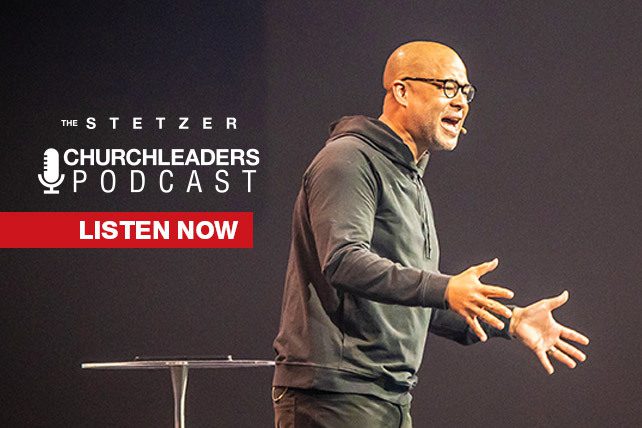Dr. Bryan Loritts is teaching pastor at The Summit Church in Durham, North Carolina, president and founder of the Kainos Movement, and Vice President of Regions for the Send Network. He is the author of several books, including, “The Dad Difference: The Four Most Important Gifts You Can Give To Your Kids.” His latest is, “The Offensive Church: Breaking the Cycle of Ethnic Disunity.”
Other Ways To Listen to This Podcast With Bryan Loritts
► Listen on Amazon
► Listen on Apple
► Listen on Google
► Listen on Spotify
► Listen on YouTube
Key Questions for Bryan Loritts
-What progress toward ethnic unity have you seen over the past 20 years, and what are you seeing threaten that progress?
-What can we do to get better at authentic multiethnicity in the leadership and the culture of a church?
-Should we expect every church to be multiethnic?
-What are some helpful and harmful ways you’ve seen churches try to respond well and build better bridges for ethnic unity?
Key Quotes From Bryan Loritts
“Over my years just doing this work, I think the race conversation kind of rises and falls with what’s happening in our world in the news cycle…And I think basically our posture has been one of defense when it comes to the race conversation.”
“Jesus postures hell on the defensive and church on the offensive. And so…what is the way in which we can play offense when it comes to what I call ethnic unity?”
“The gospel is both vertical and horizontal. Vertical is of first importance, Paul would tell the Corinthians, but the gospel knows nothing of an unforgiving Christian, it knows nothing of a greedy Christian, and it knows nothing of a racially insensitive Christian.”
“What I felt and heard a lot during the pandemic…[was] a lot of individuals and particularly minorities who were a part of multiethnic churches just saying there was fatigue, there was frustration. There’s this thing in which, I’m done.”
“I fear that we have people who’ve gotten a taste of the multiethnic church, the problems hit the fan, they didn’t like the response, and now they’re just like, ‘I gave it a good try and I’m done.’ It’s almost in the same vein of deconstructing.”
“The basic norm of the New Testament church was multiethnic.”

